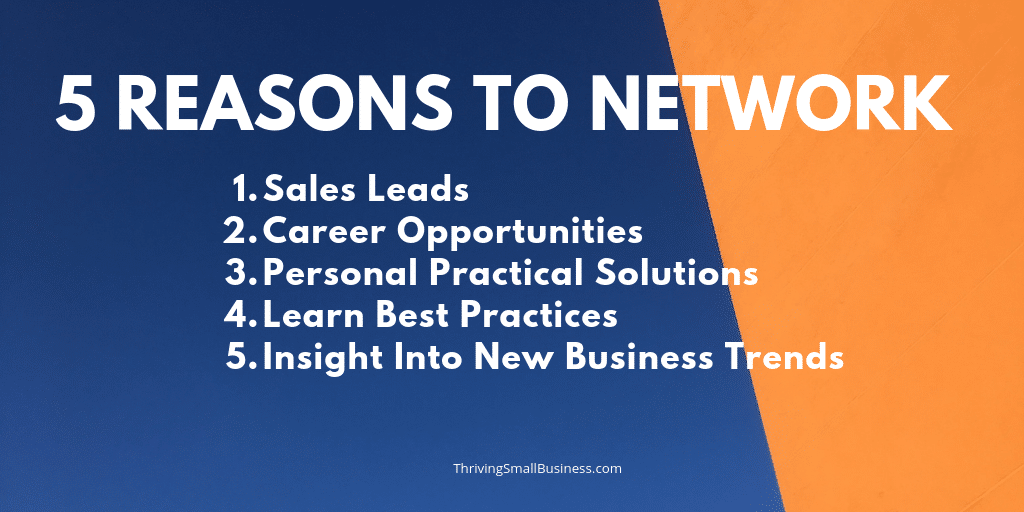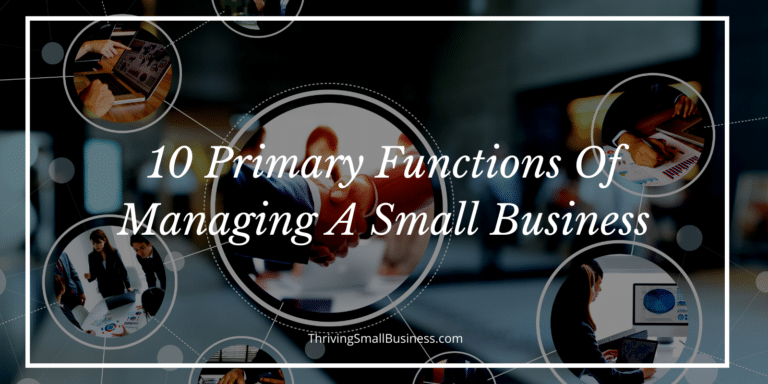5 Advantages of Professional Networking
Estimated reading time: 5 minutes
A simple life reality is that people need people.
We need our family, we need our friends, and we need others in our industry.
Which makes professional networking so important.
Professionals use networking as a means to form relationships with others, in like or related fields that help to expand one’s effectiveness in an organization or industry.
A key element to effective networking is to make you known.
The premise is that the more people you meet, the more people there will be to get to know you and remember who you are.
Use every professional and social opportunity to meet and connect with new people.
Making friends and letting people get to know you on a personal level is an important aspect of networking.
Let the people you meet get to know who you are, how you think, and what skills you have to offer.
Do this by being open, honest, and comfortable with yourself.
Strive to leave a positive impression on everyone you meet and to send the message that you are not only competent but also a pleasant person to deal with.
Be optimistic and excited about what you do so new acquaintances remember you and want to maintain a connection with you.
A key to this is to be diligent with returning emails and phone calls to maintain your credibility with them.
There is nothing more frustrating than contacting someone you meet and them never responding to you.
Be consistent with your business service standards and make an effort to return phone calls and emails by the end of each business day.
5 Advantages of Professional Networking
1. Identify New Business Leads
Every business strives to acquire new customers and networking is a great way to acquire new business leads.
Use the contacts you meet to make a way for business opportunities.
However, people want to help others but aren’t interested in someone badgering them for business.
Communicate professionally when you follow up on leads. Be sensitive to timing and use common courtesy when following up with contacts.

For instance, if you exchange business cards at a networking event for restaurants, make the first contact by inviting your new colleague to a food tasting. This will send the message that you are truly interested in the relationship more than the expected referral.
Use the food tasting as a second opportunity to interact and get to know the other person better. Make the choice to give more than you ask for and the leads will naturally happen.
2. Career Opportunities
We all know that you need to know someone in an organization to get exposure to the person screening applicants.
Statistics show that networking is the best way to land a new job.
Professional networking can expose you to jobs that aren’t posted online or in newspapers.
Make others aware that you are looking for a job and what your expertise and experience are, and you could open career doors of opportunity.

For instance, if you attend a continuing education seminar, strike up conversations with other attendees and share your current job situation and your aspirations of future opportunities.
You just never know who might have the connection for a new career that you are looking for.
3. Personal Practical Solutions
Networking can also be a personal benefit. Professional relationships you develop can be used for identifying practical solutions to everyday life.
As an example, you can use your network to identify a contractor to do a remodeling project on your home or help you find an athletic club for your children.
Weaving personal conversations into your network helps others get to know you in an intimate way and helps build the relationship.
4. Business Connections Help Identify Best Practices
Networking is a great way to identify business best practices or industry benchmarks. Learning from what others do is a valuable strategy for all businesses.
Benchmarking is a great way to learn how to improve a process and find cost savings or employee training tips.
For example, if you own a restaurant and you belong to a restaurant association, you can find out what the latest software programs are or employee management practices that you can bring back to your own business.
5. New Business Trends
Technology is changing rapidly and new technologies to improve how work gets done come to market every day.
Networking can help you stay on the cutting edge of technology and new business trends.
Maintaining professional relationships can give you access to inside information.
These shared industry tips can potentially give you an advantage over your competitors by implementing new and fresh ways of doing things.
For instance, next time you are at a networking event, ask colleagues what software they use to manage their social media campaigns.
You may learn of a new software that is more effective for the marketing you do.
Professional Networking is a Skill
Having said all of this, networking is a skill.
We all have different social styles and some people are just naturally more gifted at mingling with people that they don’t know and making friends on the first contact.
If you are an introvert, practice being friendly and learn the art of striking up conversations. Learn the trick to remembering people’s names that you meet.
Create a system; write something specific about a person on the back of their business card so you can remember them when you get back to your office.
It is nearly impossible to gain new business without other people.
Use every opportunity to make friends and share what you do.
Be friendly, and professional and if you commit to doing something – follow through.
This consistent dedication to making new contacts will not only help you acquire new business but who knows may help you with a career change that you never expected!
Does anyone have success stories to share through networking?






